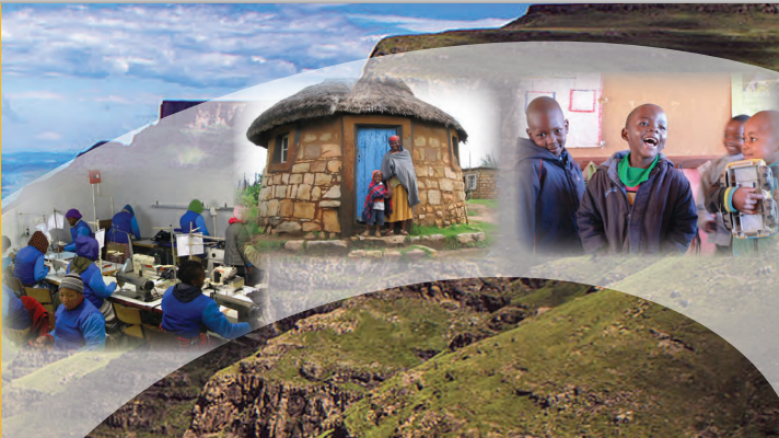MASERU, June 30, 2016 – With the endorsement of the new Country Partnership Framework 2016-2020, the World Bank Group (WBG) will support the Lesotho government in its efforts to address long-term development challenges.
The CPF focuses on two strategic areas; improving efficiency and effectiveness of the public sector and promoting private sector job creation.
“Through this framework, we will support the Government of Lesotho in its transition to a new growth model driven by private sector investment which will require a reduction in the size of the public sector and improved public sector effectiveness,” said Guangzhe Chen, World Bank Country Director for Lesotho. “We will assist the Government of Lesotho to create space for the private sector to become an engine of growth and employment, in a challenging economic environment with very high unemployment.”
Lesotho’s public expenditure is above 60% of its gross domestic product (GDP) driven largely by a wage bill which is among the highest in the world at 23.1% of GDP. Along with a domestic private sector which is dependent on the state and non-tradable sectors, and several mutually reinforcing volatile events in the last 18-months such as the global commodity price slump rand the severe drought in Lesotho have exacerbated the country’s economic situation.
The CPF is expected to deliver $154 million in financial support and is aligned to Lesotho’s developmental goals as expressed in Vision 2020 and the National Strategic Development Plan 2012-2017. Its objectives were shaped by a series of consultations with key stakeholders including government, development partners and civil society organizations and the private sector.
The two focus areas include eight strategic objectives expected to lead to strong development results. These priorities emerged from the Lesotho Systematic Country Diagnostic, an evidence based and comprehensive assessment carried out by the World Bank Group on the country’s key challenges, the South Africa Custom’s Union revenue crisis and the severe drought, as well as the Lesotho’s own strategic objectives. These eight priorities are:
- Improving public sector and fiscal management - to achieve a capital budget that is fully derived from the public investment plan, and elimination of irregular HR and payroll cases in the civil service and non-eligible beneficiaries from the Old Age Pension.
- Improving equity of the social assistance system - to increase the percentage of households receiving an expanded Child Grant Program that are in the poorest forty percent of the population.
- Improving Basic Education Outcomes - to reduce drop-out rates in the 300 lowest performing primary and junior secondary schools most of which are located in mountainous and hard to reach poor rural areas.
- Improving health outcomes - to increase average Health Facility Quality - to improve contract management of the Queen Mamohato Memorial Hospital, and improve TB treatment success rate nationwide for new and relapse TB cases.
- Improving the business environment reform and diversifying the economy – to increase progress in the investment climate reform agenda and increase the number of domestic enterprises registered and operating in the non-textile sectors.
- Improving smallholder and MSME agricultural productivity - to increase the household commercialization level in select districts.
- Increasing transport connectivity to facilitate private sector growth – to improve transport connectivity for local agricultural markets and tourist sites and create jobs through road construction and maintenance jobs, and
- Increasing water and renewable energy supply for industry, agriculture and export opportunities – to ensure that bulk water supply works are underway or completed in priority water demand zones, i.e. those with significant industrial, commercial and/or agriculture water demand, identify new viable renewable energy generation projects and complete a feasibility study of the hydropower component of Phase II of the highlands water project.
In addition to financial and technical assistance support, the WBG will also provide advisory services and analytics focusing on understanding the links between jobs, education, growth and competiveness, Under the CPF, the WBG will also undertake a poverty and inequality analysis, private sector diagnostic and, jointly with the government, a review of public expenditure. It will also support financial inclusion and strengthening the pension and insurance sectors, and analyze the impacts of the demographic dividend for Lesotho.
